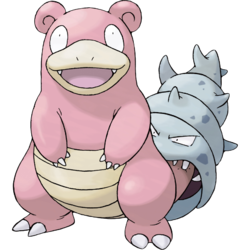Question to those not in the USA, and who have lived outside the USA.


I've been thinking about something and want to check an assumption I have. I only hear directly from other people in the USA, and interract with the global community through memes. How are the gun regulations/laws different from yours in terms of strictness, and do you wish there was more or less where you live?
Not looking for a debate here, discuss cold drinks vs hot drinks instead. Appreciate either answer. ❤️
Edit: Thanks for the answers all. I'm super proud how productive eveyone kept this talk. I figured most of you had very different experiences than I. I'll share my most recent experience. I don't have a firearm, but have considered it after being trained enough. When sharing this with "normal" people around town, I had multiple people offer to sell or gift me a gun where the serial number was scratched off and non-traceable. I ofter heard, "oh man, yeah. You need a gun." I have literally never needed one. The fact that people offer to give me one when I don't have a liscence or training shows the mindset of the minority here and how much of a problem a few individuals can make to safety within the current system.
I never said anything about changing gun laws.
Sorry, misunderstood your comment about self-defence laws.
The current law is you can defend yourself using appropriate force to stop the threat. You can use whatever you have to hand.
If you don't want to change gun laws, what would you like to change? Flick knife laws?
For a start it shouldn't be a crime to merely carry something for self-defense. The current laws say that carrying anything for the express purpose of self-defense is illegal. There's a bizarre cat and mouse game where the law says 'its fine to defend yourself' while simultaneously expressly forbidding you from carrying anything that you might be able to use for self-defense. It puts anyone actually in a life threatening situation at a supreme disadvantage: An attacker is already breaking the law so they'll be armed to some extent, but under the law the victim is designed to be defenseless. If they do decide to arm themselves against the law and use it to defend themselves they can be prosecuted for carrying a weapon after the fact.
Thanks for the explanation. On one hand I think you have a point, on the other hand I still can't tell what kinds of weapons you want legalised.
But no one ever is unless it's something egregious. There are even law blogs advising on what to carry.
We've had self defence stabbings and even shooting, the victims were not prosecuted. In the case of that guy who stabbed someone to death for tagging his fence, he probably should have been tbh.
I have no strong feelings on which particular weapons should be legal to carry, even if it's just pepper spray or brass knuckles or something. The main thing is that it should be legal to carry something.
Also, selectively enforced laws are a terrible, HORRIBLE concept and should be avoided at all costs. It gives police and those in power the ability to selectively punish (or pardon) whomever they choose, often at the whims of their personal biases. Passing and exploiting selectively enforced laws is a common tactic used by corrupt nations and can be used to silence political opponents, target selected groups, promote agendas and so forth. The law should not rely on cops 'being nice' and choosing not to arrest you.
@Rossphorus
That's a really good point. My lassaiz faire attitude to this is something I need to rethink. It's a bit like the abortion law thing we had a while ago.
Selective enforcement is one of those concepts that isn't talked about much outside of legal ethics circles unfortunately, but I think it's an important concept to be aware of and the potential issues with it. I first heard about it from The Dictators Handbook, which explores many behaviours of politicians and those in power, including how and why corrupt nations often employ selective enforcement. It's an interesting read, would recommend. It definitely changed how I looked at the world.
I guess there's passive selective enforcement (like NZ's old abortion law, where in theory women could only have an abortion if the pregnancy was a risk to health) and then there's more active selection (like corrupt countries use on political opponents)?
I will keep a look out for that book.